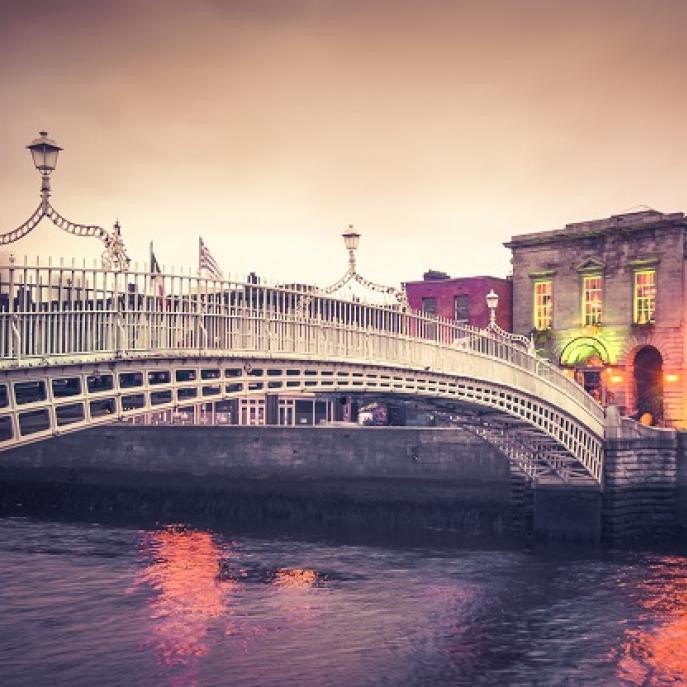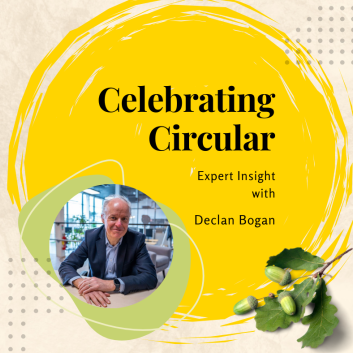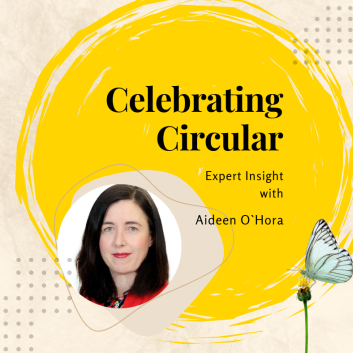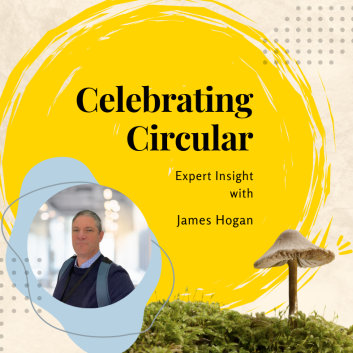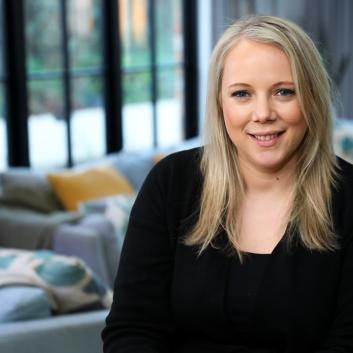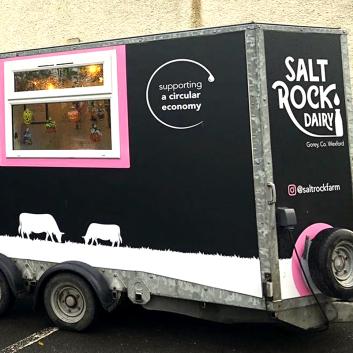Building the future of Dublin on resilience and innovation
Interview with Mary Mac Sweeney, Deputy Head of Enterprise and Economic Development, Dublin City Council.
I work for Dublin City Council at the Economic Development Department and inspired to be part of the journey in shaping the future of this City. Through engaging with a wide range of stakeholders, we provide a diverse, multi-layered and evolving field of services responding to business, citizens and visitor needs. In my day to day work, I am supporting startup and scaling businesses through the Local Enterprise Office and promoting Dublin as an attractive place to live, work, study and invest through the Dublin Place Branding initiative with the Dublin.ie website.
As the City continues to experience growth and facilitates ongoing development across the economic, social, cultural and other sectors, we are committed to making this growth inclusive and sustainable.

Social and environmental challenges, like climate change demand actions to transform Dublin to become a leading example of an innovative and resilient city.
All forms of resilience are more important than ever in the light of the sudden changes we experience in all walks of life in dealing with this coronavirus crises.
The shockwaves of these unprecedented events will have a long-lasting impact on our lives and the economy. However, besides the painful and heartbreaking losses we have to suffer now, it presents a once in a lifetime opportunity to build something better.
I trust that we will bounce back with the strength and courage to re-evaluate our priorities and create a more sustainable and healthier world for all of us.
"The recovery from the COVID-19 crisis must lead to a different economy. Everything we do during and after this crisis must be with a strong focus on building more equal, inclusive and sustainable economies and societies that are more resilient in the face of pandemics, climate change, and the many other global challenges we face,” said António Guterres, Secretary-General of the United Nations at the launch of the report on socio-economic impacts of coronavirus.

A new deal for business
We clearly see the trends that social values and sustainability are becoming vital parts to start and grow an enterprise. Besides the increasing consumer and employer demands regarding responsible business practices the new European Green Deal introduced in 2019 by the European Commission will have a ripple effect on every segment.
This is Europe’s new agenda for sustainable growth which aims to transform our cities to become cornerstones in building a climate-neutral economy by 2050 in Europe. “We do not have all the answers yet… But this is Europe’s man on the moon moment,” said Ursula von der Leyen, EU Commission president, highlighting the significance of the new Green Deal.

It is practically a roadmap with specific actions to a low carbon economy, while maintaining prosperity, ‘by turning climate and environmental challenges into opportunities across all policy areas and making the transition just and inclusive for all. This package focuses on boosting the efficient use of resources by moving to a clean, circular economy while restoring biodiversity and cutting pollution.’ (EU Commission)
The plans include many policy areas to design funding schemes, change regulations and support innovations to enable and accelerate the transition to a net-zero carbon economy.
As part of this in March 2020 the Commission adopted the new Circular Economy Action Plan focusing on making our economy fit for a green future, strengthening our competitiveness while protecting the environment and giving new rights to consumers. Legislation and regulation will further drive the reduction or elimination of business practices that are harmful to the climate or not delivering on targets.
The recently proposed European Climate Law aims to turn the political commitment into a legal obligation and a trigger for investment. To make these changes happen the EU will provide financial support and technical assistance through the ‘Just Transition Mechanism’ programme with at least €100 billion over the period 2021-2027 to help those who are most affected by the move towards the green economy.
"The new Plan will make circularity the mainstream in our lives and speed up the green transition of our economy. Future-oriented actions will create business and job opportunities, give new rights to European consumers, harness innovation and digitalisation and, just like nature, make sure that nothing is wasted,” said Virginijus Sinkevičiu, Commissioner for the Environment, Oceans and Fisheries in regards of these plans.
Gearing up Dublin
This future is approaching like a tsunami, which might seem small from a distance, but when it arrives, it changes everything, and it moves much faster than we might anticipate.
To respond to these changes, Dublin City Council has developed the Climate Change Action Plan 2019–2024 in partnership with Codema (Dublin’s Energy Agency) and members of the public and staff from across all Council Departments. The actions presented here will guide the City not just to mitigate the impacts of climate change but actively facilitate the reduction of greenhouse gas emissions and advance economic growth at the same time.
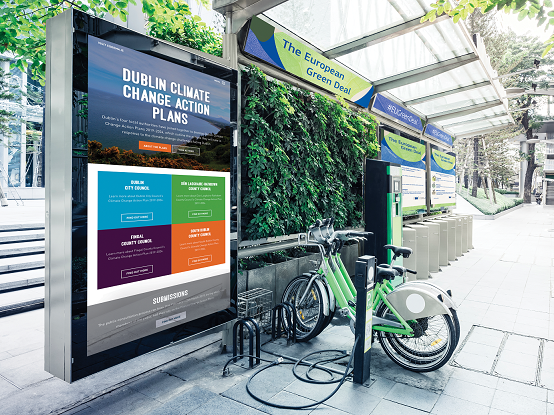
The delivery of these actions in the short, medium and long term will enable the Council to transform Dublin to become a climate-resilient city with many opportunities for businesses and its citizens to harness the benefits of a low carbon economy. An additional resource to support the City in delivering on these ambitions is the recently established Dublin Metropolitan Climate Action Regional Office – CARO. It will work closely with Dublin City Council, Codema and the other Dublin Local Authorities in the implementation, monitoring and updating of the Climate Change Action Plan.
To start the change, we wanted to take the first steps by looking at our own greenhouse emission as a Council and for the entire City. The mitigation baseline calculates just that, including a breakdown of the residential, transport and commercial sectors. It found that Dublin City Council produced just under 40,370 tonnes of CO2 in 2017 and has reduced its emissions by 24% in the last ten years. Besides, the Council has improved its energy efficiency by 29.8% and is currently on track to meet its 33% energy efficiency target by 2020.
However, given that the Council’s buildings, operations and social housing account for less than 5% of the total emissions in Dublin City, it highlights the need to tackle the remaining 95% of emissions produced citywide. In recognising this challenge, Dublin City Council will work with key stakeholders to influence and support carbon reduction initiatives across the City’s transport, commercial and residential sectors.
Public and business engagement is key to tackling the climate challenge. Our plan commits to addressing the current knowledge-gap through a range of awareness campaigns.
Looking into the future
There is a growing expectation from all stakeholders towards businesses to have strategies in place to demonstrate and communicate transparently how they are contributing to the solution and not to the problem. That means setting out details about all aspects of the service or product they deliver and how they are pivoting their businesses to make a positive impact on both people and the planet.
Significant changes in their operation and skillset will be necessary to keep up with the market and the competition.
I believe raising awareness of what this means for each individual business is essential. Dublin City plans to create several opportunities, such as events or training, where companies can learn from experts and from each other about what they could be doing to respond to global and local changes.
The new Dublin City Council Corporate Plan shares the mission of making Dublin the ‘best place in which to be, to live, to work, to do business and to enjoy’ and for the first time, the United Nations Sustainable Development Goals (SDGs) are incorporated into this plan.
Dublin City Council also supports a number of initiatives and actively collaborates with key stakeholders to deliver on these commitments and inspire change.
One of our recent offer for businesses is the MODOS course, where participants can gain knowledge related to Circular Economy and network with their peers to start building a community in Ireland.
The course is managed in partnership with the Eastern-Midlands Regional Waste Management Office and designed for micro, small and medium enterprises.
This programme aims to equip leaders with the necessary skills to embrace the opportunities in a new low carbon economy and shape their business model accordingly.
Participants of the first MODOS training were in fact quite diverse, including businesses from the catering industry to fashion, event planning, design, cosmetics and manufacturing. For example, Native Events is a leader in sustainable event solutions in Ireland, while Viva Green have been pioneers in creating innovative sustainable products over the 25 years. After the first rollout of the programme, the “MODOS Phase II” training is coming soon.
We also partnered with the annual international conference held in Dublin, the Responsible Innovation Summit, where business leaders, researchers and policymakers meet to cross-pollinate ideas while learning about trends about responsible innovation and investing.
Through the Local Enterprise Office services, we provide ongoing supports for value-driven businesses to help them succeed and deal with the impacts of the Covid-19 pandemic.
At this stage we are all in learning mode when it comes to what’s involved in this transformation process, so the sooner businesses get involved, the sooner they can start to plan their own transformational strategies.






